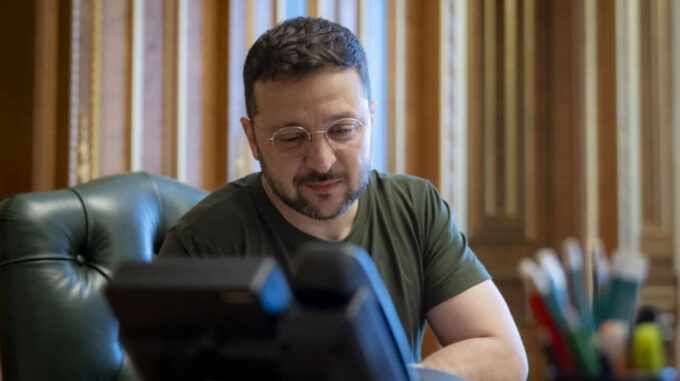For the first time in Ukraine’s history, President Volodymyr Zelenskyy communicated with the newly elected Pope Leo XIV and immediately extended an invitation to Kyiv

This encounter of human hearts and diplomatic efforts became a landmark step in the process of seeking a future of peace and understanding, which is so desperately needed for our country. The meeting took place in a warm and professional atmosphere. Inspired dialogue between Zelenskyy and the Pontiff marked the beginning of a new epoch of dialogue between Ukraine and the Vatican. According to the Ukrainian leader, he expressed gratitude to the Pope for his support and recognition of the Ukrainian people, as well as for speeches emphasizing the importance of achieving a just, lasting, and comprehensive peace. Zelenskyy stressed that the issue of the release of prisoners and the return of Ukrainian children deported by Russia occupy a special place in this dialogue, and he expressed hope that the Vatican would assist in bringing these people back home. The President announced an agreement with international partners to initiate a full-scale, unconditional, three-week ceasefire — the so-called "green corridor" for a cessation of hostilities. This is the first step toward sustainable peace, which Ukraine is ready to continue supporting, provided that Russia takes corresponding actions. At the same time, Zelenskyy reaffirmed his readiness to engage in any format of negotiations, including direct talks, to end this war as soon as possible. According to him, Ukraine is doing everything possible to achieve peace and is awaiting a response from the Kremlin. Additionally, in his speech, the Ukrainian President extended an official invitation to the Pope to visit Ukraine with an apostolic visit. Zelenskyy believes this step could symbolize a strengthening of international support and give new impetus to the Ukrainian people's fight for freedom and dignity. "Such a visit would bring real hope and support to all believers and citizens of Ukraine," the head of state emphasized. Agreements were also reached between the government and the Vatican regarding further contacts and the planning of a personal meeting in the near future. An important aspect of this diplomatic initiative is the mutual desire of both sides to maintain dialogue and work together to find ways out of the conflict. A few days ago, the world was surprised by the news: in early May, American Cardinal Robert Francis Prevost, known for his active stance and deep understanding of international issues, was elected as the new Pope Leo XIV. Ukrainian politicians and public figures already expressed hope that the new Vatican leader would support Ukraine’s efforts to achieve a just and lasting peace. Recent developments confirmed this hope: on May 11, Pope Leo XIV, in his first official address, called for an immediate ceasefire in Ukraine and the Gaza Strip, emphasizing the importance of respecting human life and the release of hostages. This is a signal to the global community that, in this worldwide crisis, diplomacy and mutual support are our primary tools for achieving lasting peace. Thus, this first conversation between Ukraine’s president and the new Pope Leo XIV marked an important step in the process of diplomatic resolution, comprehensive support, and seeking compromises. Ukraine has done and continues to do everything possible to restore peace and internal stability, and the Vatican’s call for action could perhaps serve as the push needed to overcome this conflict and return to peaceful life.

